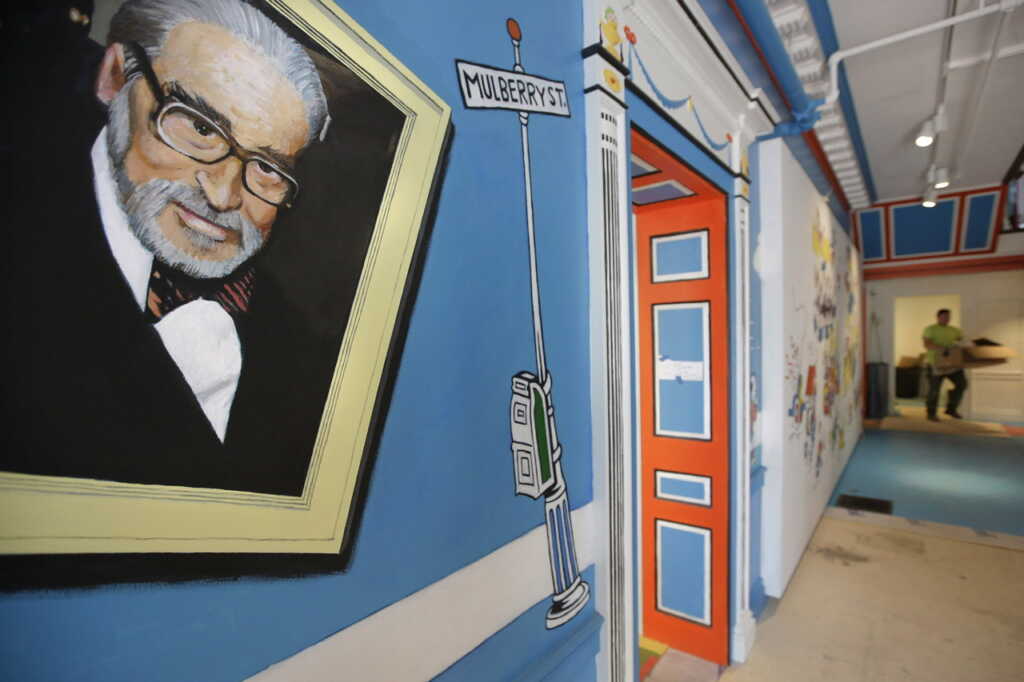Dr. Seuss once famously wrote, “A person’s a person no matter how small,” but based on today’s standards, we now know that’s not true at all.
The company that publishes Dr. Seuss books, written by the once greatly beloved Theodor Seuss Geisel, announced Tuesday — on the late author’s birthday — it would stop selling six of his works because they “portray people in ways that are hurtful and wrong,” Dr. Seuss Enterprises said in a statement to the Associated Press.
“Ceasing sales of these books is only part of our commitment and our broader plan to ensure Dr. Seuss Enterprises’ catalog represents and supports all communities and families,” the statement continued.
***As the number of voices facing big-tech censorship continues to grow, please sign up for Faithwire’s daily newsletter and download the CBN News app, developed by our parent company, to stay up-to-date with the latest news from a distinctly Christian perspective.***
The digitally burned books are: “And to Think That I Saw It on Mulberry Street,” “If I Ran the Zoo,” “McElligot’s Pool,” “On Beyond Zebra!,” “Scrambled Eggs Super!,” and “The Cat’s Quizzer.”
Dr. Seuss’ sins include an illustration in “And to Think That I Saw It on Mulberry Street,” his first foray into children’s books in 1937, in which the illustrator depicted a Chinese man in stereotypical garb alongside the text, “Chinaman who eats with sticks.”
On Monday, the eve of Dr. Seuss’ birthday, President Joe Biden avoided any mention at all of the late author during his presidential proclamation over “Read Across America Day,” which was founded in 1998 by the National Educational Association and historically commemorates Dr. Seuss’ birthday and his monumental contributions to children’s literacy.
Biden’s erasure of Dr. Seuss is out of line with his two latest predecessors, Presidents Donald Trump and Barack Obama, with whom he served as vice president.
In 2014, Obama said Dr. Seuss’ writings “challenge dictators and discrimination” and “call us to open our minds, to take responsibility for ourselves and our planet.” Then, in 2015, the nation’s first black president poured praise on the renowned author’s “whimsical wordplay and curious characters [who] inspire children to dream big and remind readers of all ages that ‘a person’s a person no matter how small.’”
In 2016, Obama lauded Dr. Seuss as “one of America’s revered wordsmiths” who “used his incredible talent to instill in his most impressionable readers universal values we all hold dear.”
Alas, the former president’s perspective is no longer permissible.
Last week, a school district in Virginia ordered teachers to steer clear of “connecting Read Across America Day with Dr. Seuss” because of recent revelations of “strong racial undertones” in some of the author’s work.
***As the number of voices facing big-tech censorship continues to grow, please sign up for Faithwire’s daily newsletter and download the CBN News app, developed by our parent company, to stay up-to-date with the latest news from a distinctly Christian perspective.***
What a grave error we’re making by cancelling Dr. Seuss.
Not only are we erasing the childhood memories of adults around the country, we’re robbing those yet to know his work, and society more broadly, of the opportunity to witness the profound evolution of a man whose views changed for the better over time.
Though he once used his platform to peddle xenophobic tropes about people from Japan, which had bombed the U.S. in the early 1940s, Dr. Seuss — who illustrated political cartoons and war bond propaganda during World War II — eventually began using his words and art to condemn the very perspectives he previously held.
Dr. Seuss, in what is now an obvious contradiction, condemned the U.S. for its early isolationism as Germany persecuted Jewish people while at the same time echoing the deeply troubling sentiments felt by the U.S. writ large when it came to Japanese Americans, who were being shuffled into internment camps in what would later be seen as one of the greatest civil rights violations of the 20th century.
But with time — and exposure to real people and their lived experiences — Dr. Seuss changed, and so did his writing. In 1953, the author traveled to Japan, where he witnessed the aftermath of the bombing of Hiroshima and began to reconsider his once-xenophobic views.
Out of that trip, “Horton Hears a Who!” was born. The 1954 children’s book is about an elephant tasked with protecting a speck of dust populated by tiny people. In that book, Dr. Seuss wrote his beloved line, “A person’s a person no matter how small” — a clear rebuttal of the views the author held just a decade earlier.
And in the 1940s, he was illustrating cartoons calling out racism.
Like all human beings, Dr. Seuss was complex: he made mistakes and missteps, published imperfect and, at times, hurtful work while also appealing to his better instincts in other areas. The arc of his career tells a story — a human story — of a man who grew with age to understand better what it means to care for and cherish others, despite our differences.
By cancelling Dr. Seuss we’re sending a clear and deeply concerning message: It really doesn’t matter if you get it right in the end, because you were wrong in the beginning — and that’s all we’ll remember of you.
We should be better. We must extend grace. We have to see nuance and context, because otherwise we are doomed to see people as nothing more than commodities: problems to be erased and hurdles to be shuffled away for the sake of ideological purity.
Today, we would do well to remember Dr. Seuss’ timely lesson: A person really is a person — “no matter how small.”
***As the number of voices facing big-tech censorship continues to grow, please sign up for Faithwire’s daily newsletter and download the CBN News app, developed by our parent company, to stay up-to-date with the latest news from a distinctly Christian perspective.***



